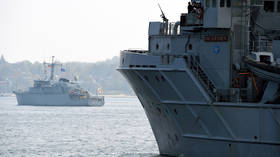Reasons behind US generosity

The decision of the US administration to suspend its plans for missile defense bases in Eastern Europe might be pragmatic, but as with any pragmatic decision there can be an array of reasons behind it.
While most reporters named the current state of the Iranian missile program as the main reason to suspend the missile shield plans, we know that Iran continues to work on short-range and long-range missiles, and sooner or later this research might yield results, unless the United States and the international community deal with the problem. But the situation is stalled at the moment, partly because of the self-sufficiency of the Iranian economy and partly due to opposition to imposing strict sanctions on the part of Russia, who sees Iran as an important economic partner.
As any military expert would say, one of the major problems with missile defense systems is that their construction might not prevent, but could actually spark a conflict – potential enemies would hurry to use their missiles before they could be intercepted. That would make the lack of modern missiles in Iran an argument for the continuation of the program and not for “shelving” it.
Another reason given by diplomats and reporters is a thaw in Russia-US relations. Here I can say that, while the thaw has surely been announced, the action from both sides has not yet proved the reality of this event, with Russian officials constantly blaming United States for economic and political problems all over the world and the United States refusing to review their attitude towards the Russian-Georgian conflict – probably the most acute problem in Russia’s foreign policy. The decision to withdraw the missile defense plans that angered Russia so much could be a significant step in mending relations, but why was the United States the first party to take these steps?
To answer this we must study the recent political events that touched upon the interests of Russia, United States and Europe at the same time. In my view, such events are everything that touches upon Afghanistan. And Afghanistan is the issue over which Russia and US are actually moving closer, while at the same time the support for the Afghan operation in Europe is waning.
Although not participating directly, Russia is showing more and more support for US action in Afghanistan. Russian military and political experts are giving advice to US forces and, most important of all, as of September 6, Russia allowed US military transit to Afghanistan through its airspace. The move is crucial as the US faces more and more difficulties bringing supplies through Pakistan.
At the same time, Britain, France and Germany have repeatedly called for wrapping up the Afghanistan operation and for a withdrawal of troops. Last week the leaders of the three nations wrote a letter to the UN Secretary General in which they proposed to hold an international conference on Afghanistan and set a timetable for troop withdrawal. In Germany, the question has become a key issue in the ongoing election debate, and it is possible that the Bundeswehr may leave Afghanistan as soon as 2011.
So how does this match with the ten interceptor missiles the US plans to station in Eastern Europe? As it has been announced, the system was planned to protect Europe from threats from the East – primarily the Middle East and primarily Iran. So the decision to wrap up the immensely expensive project can be, among other things, a reply to European unwillingness to defend US interests in Afghanistan.
On the other hand, the European stance is also perfectly understandable – Taliban bullets, while having a much shorter range, have one significant advantage over Iranian missiles: they are real.
Kirill Bessonov, RT












